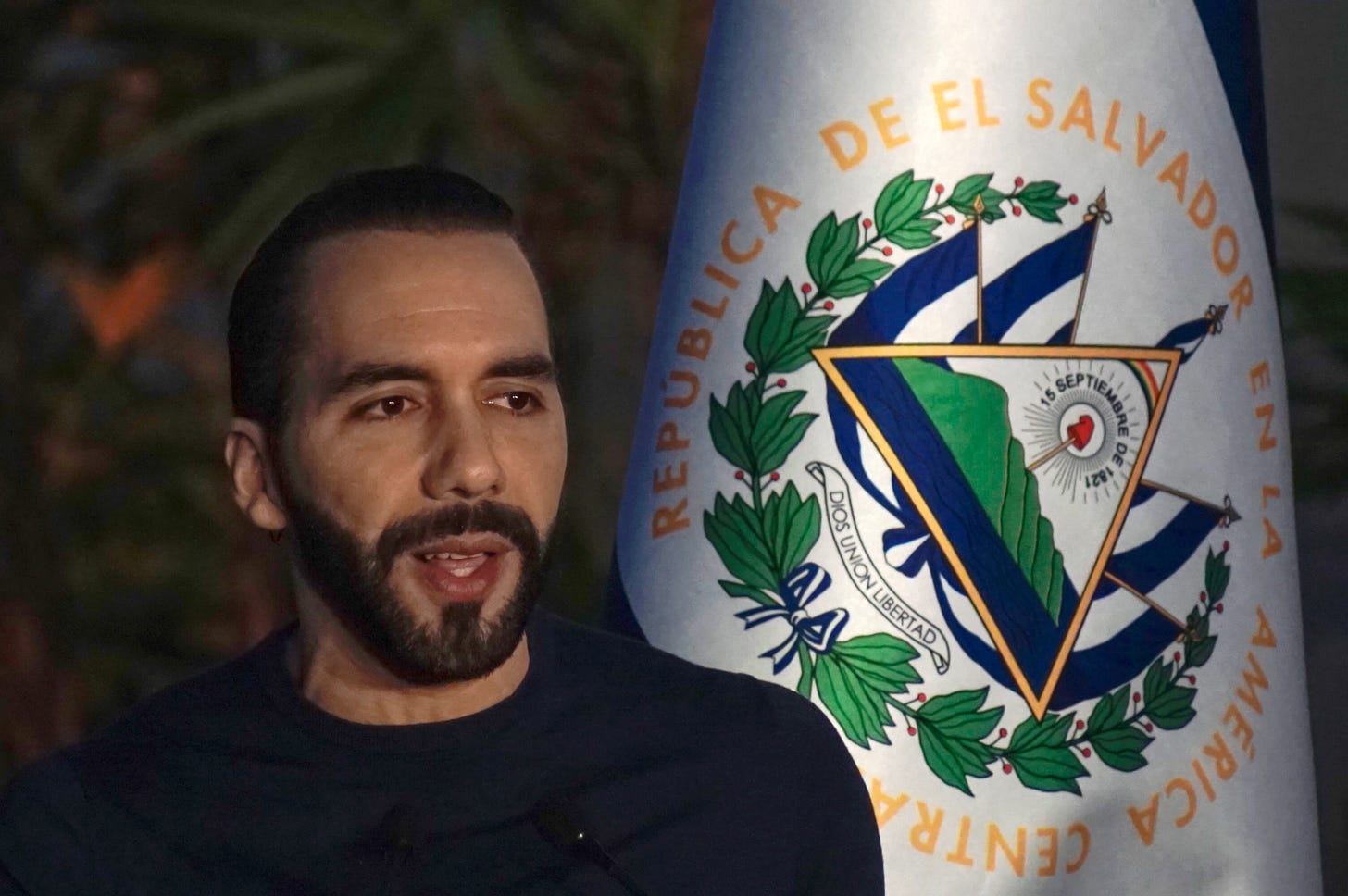
Turning Retirement Against Workers
April 24, 2025
When Serving the Country Means Erasing My Trans Child
April 24, 2025During the Second World War, my Polish family hosted in their Warsaw apartment a young resistance fighter whose job was to assassinate Poles who collaborated with the Nazis. Such were the stakes in that terrible moment. Fearful and hungry people often felt pressure to give information to the Nazi occupiers, whether for money or food or to avoid being deported or shot. If their sense of honor was not enough to prevent them from betraying their country, the underground resistance gave them something more tangible to worry about.
Nothing in our current American situation comes close to what people experience under genuine tyranny or foreign occupation. We still have our freedom to speak, protest, vote, and seek redress in court; many individual Americans and institutions (like Harvard University) are pushing back and doing fine. I’d still bet history will look back on Donald Trump as a wannabe dictator who miserably failed.
But after two months of watching the man trying to dismantle the government, defy the courts, and dare us to stop him, we have to acknowledge that the possibility of losing democracy is real, and start considering questions Americans have little experience facing.
While reading JVL’s Triad last week about how Trump induces collaboration from law firms, universities, and foreign countries, and his proposal for a Democratic “Avengers Initiative” to punish the enablers, I couldn’t help thinking about my family’s stories from a darker time. The common thread is that leaders with authoritarian intentions (whether fully realized or not) deliberately force cruel choices on people: Either betray your ideals and your friends and become compromised, or risk a punishment you fear.
What’s more, such leaders assume that their more principled opponents will never respond in kind, which gives them a certain advantage. As Jonathan writes:
Trump’s Wager says that liberal institutions should collaborate with an authoritarian, because if the authoritarian proves durable, then they will be saved. But if the liberal order reasserts itself, they do not have to fear retribution, since liberalism doesn’t do retribution.
The question for Trump’s opponents therefore becomes: Should we start threatening costs of our own on those who, whether out of fear or opportunism, enable Trump’s authoritarian actions and corruption? Can we even the scales and deter collaboration without violating the very principles we’re fighting to defend, and without becoming a mirror image of our opponents? If so, how?
These questions are easiest to answer—in the affirmative—when it comes to Trump’s foreign enablers. And the Salvadoran president, Najib Bukele, presents the clearest case because has crossed a line that few foreign dictators ever have: Not only is he relishing the support of an American president for human rights abuses in his own country; he is engaging in a conspiracy with that president to subvert the rule of law in America itself.
Democrats in Congress should introduce legislation now that would impose the most crushing possible sanctions, including asset freezes on Bukele and every member of his government, along with Trumpian tariffs on El Salvador’s exports, if Bukele doesn’t return Kilmar Abrego Garcia and cooperate with all U.S. court orders regarding migrants sent to El Salvador. The bill could also hit Bukele’s weakest spot, by establishing a commission to investigate his dirty deals with the leaders of gangs like MS-13, and whether the Trump administration protected Bukele by returning imprisoned gang leaders to El Salvador before they could testify against him in American courts.
Of course, no such bill would pass a Republican-controlled Congress. The point would be to remind Bukele that the political pendulum in the United States will eventually shift and that his fate then will depend on his actions now.
Bukele is not the only foreign tyrant who might have an incentive and the means to help Trump’s project succeed. For example, wealthy Persian Gulf dictatorships like Saudi Arabia and the United Arab Emirates have been happy to enrich Trump’s family personally in exchange for influence, and for the pleasure of watching America’s democratic star set.
Then there are those foreign governments that will feel pressure to do Trump personal favors (or in Trump’s words, “kissing my ass”) to avoid his tariffs. Vietnam, for example, is reportedly protecting itself by speeding up approvals for a $1.5 billion Trump resort. I’ve heard plenty of stories about Washington lobbyists and consultants advising foreign governments to get to know members of Trump’s family and to be friendly to their business interests as they negotiate trade deals.
Democrats in Congress should start signaling now that those who play this game will pay a price down the road. They should announce that they will hold investigative hearings the moment they regain control of the House or Senate into inappropriate dealings related to tariff negotiations. They should introduce legislation expanding reporting requirements under the Foreign Agent Registration Act to include contacts with presidents’ family members, top advisers, and companies they own, and allowing the Commerce Department to restrict investments in the United States made by foreign sovereign wealth funds (such as those run by the Gulf monarchies) if there is evidence those funds have sought to buy political influence rather than normal commercial advantage. They should call every foreign ambassador to a meeting in the Capitol to brief them on what lines cannot be crossed and to provide a warning that a future Democratic Congress and administration will hold them accountable with sanctions and even criminal investigations if they break the rules.
Join Sarah, Tim, JVL, and more for an evening of politics among friends.
Tickets are on sale now for these two forthcoming Bulwark Live shows:
Wednesday, May 28 in Chicago
Thursday, May 29 in Nashville
That, above, is the easy part. A domestic “Avengers Initiative” would raise more difficult questions. Should anti-Trump forces fight fire with fire by promising a future Democratic administration will blacklist law firms for having negotiated deals with Trump? If the IRS revokes Harvard’s tax-exempt status, should Democrats threaten to revoke the status of the Heritage Foundation or of religious colleges and universities that don’t strictly follow federal anti-discrimination rules? Should Ivy League universities—if they do in fact lose their federal funding—deny admission to the children of Trump administration officials who rail against the elite institutions that educate their families?
Here, I see a case for more nuance. For example, I’m genuinely furious at the wealthy law partners who decided that their law firms were more important than the law, agreeing (implicitly, if not in writing) to take no clients challenging government policies or abuse of power so long as Trump is president. Paul Weiss and the others no longer deserve to exist as law firms. But I don’t believe that the government under a future Democratic president should be the agent of their demise—let it be law graduates who refuse to work for them; let it be a campaign to shame their partners, and to pressure their corporate clients, who should, in any case, not want to hire firms that so easily capitulate to the government.
The issue here, and in other areas, is that the party fighting to restore a government that respects rules must abide by the rules it champions. The furthest step I would consider would be to say that if the Supreme Court explicitly allows the Trump administration to, say, strip a university of its tax-exempt status, then a future administration would be free to do the same to a right-wing think tank. The rules of the road would go both ways, until Congress acts to clarify them. If I were in Democratic leadership, I would make that clear now, if only to help deter the Supreme Court from opening those particular floodgates.
This is not akin to unilateral disarmament. One can still promise to treat the contemptible cowards and opportunists who enable Trump’s authoritarian project ruthlessly, but within the law.
One focus should be on the corruption that Trump’s selective approach to enforcing everything from tariffs to tax policy to dismantling government is designed to encourage. Unsurprisingly, the Trump administration has gutted the Justice Department’s Public Integrity Section—the office that prosecutes corrupt politicians and government officials. Democrats should pledge now to establish a select investigative committee on public integrity if they take back the House or Senate next year to gather prosecutable evidence against anyone who offers or accepts favors to steer Trump administration policies. That committee’s work could, in turn, be turned over to a rebuilt Justice Department in 2029. Democrats should remind the administration and the public that the statute of limitations on every law that Trump’s DOJ is refusing to enforce (for example, the Foreign Corrupt Practices Act, which prohibits bribery of foreign officials) is five years; and they should introduce legislation to extend it even further, perhaps by one year for every year a law is not enforced.
We should also target corporate interests that suck up to Trump, especially if their sucking up hurts the public interest. First in line should be the social media and tech companies that, to appease Trump and suit themselves, have dropped even the pretense of moderating extremist content, fixing their hate algorithms, or protecting children. Let them understand that a future administration and Congress will subject them to aggressive regulation and litigation if they don’t change course. Here, state governments can start leading the way, as Democratic New Jersey gubernatorial candidate Mikie Sherrill has proposed.
All of this presupposes that the next Democratic administration will not be like the last two, which decided to correct their predecessor’s abuses without punishing the people responsible, or letting justice move too slowly to make a difference. The Obama and Biden emphasis on healing was morally admirable, and arguably politically correct in its time. The situation we face today, and the stakes, are of a different order.
We are confronting not just policies that we think are wrong, but attacks on the foundation of our democratic system itself. I would like to believe that we can count on the courage and honor of every player in that system to uphold it even when subjected to pressure and the threat of punishment. But the evidence so far, and what we know of human nature, suggests democracy may not survive if that pressure is coming only from the side that is trying to destroy it.
Great Job Tom Malinowski & the Team @ The Bulwark Source link for sharing this story.





